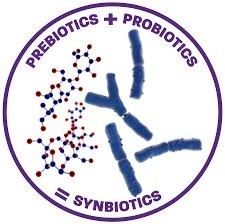Probiota Asia 2017
Alleviating allergies: Synbiotic supplementation’s gut health benefits present potential — Danone

That was one of the findings presented by Dr Guus Roeselers, a senior gut microbiologist at Danone Nutricia Research, at our very first Probiota Asia summit last week.
He referred to previous research, which had shown that the intestinal microbiota of infants delivered by vaginal birth differed from that of infants delivered by C-section.
Detrimental delay
The maturation of the latter’s immune systems was said to be slower, leading to delayed microbial colonisation.
Roeselers said microbial colonisation after birth was necessary to establish symbiosis with the immune system, and gut microbiota was closely linked with health status.
Therefore, delayed microbial colonisation post-birth would lead to compromised gut health and hence, higher allergy risk and incidence in infants.
Furthermore, while breastfeeding is considered the best method of reducing allergy risk in infants, this may not always be possible.
Combination for colonisation
However, a Danone-backed double-blind study conducted in Singapore and Thailand, which involved 153 infants delivered by C-section, had found that symbiotic supplementation could counter this.
A combination of short-chain galacto-oligosaccharides and long-chain fructo-oligosaccharides (scGOS / lcFOS) with Bifidobacterium breve M-16V managed to compensate for the infants’ delayed Bifidobacterium colonisation.
The synbiotic combination was shown to restore Bifidobacterium colonisation to reference levels within the first 22 weeks of the infants’ lives, and to aid in healthy gut development.
In addition, significantly lower pH and higher acetate levels were observed in the C-section infants’ stool samples, compared to those of the control group.
Allergic association
Presently, allergies are among the most common and earliest onset of non-communicable diseases. Their occurrence is “dramatically increasing” because of drastic environmental and lifestyle changes, with 30% to 40% of the world’s population affected.
In fact, the number of people suffering from allergies globally has been predicted to rise to four billion by 2050.
Allergic conditions such as asthma, eczema, atopic dermatitis have been linked to poor gut health in childhood.
As such, the aforementioned results have considerable implications for infants with allergies, presenting potential for significantly lowering the risk and incidence of allergies.



















